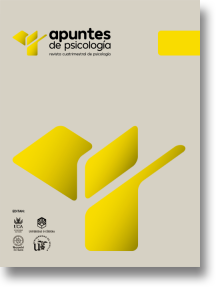HIV Interventions for African Americans and Latinos: Lessons learned from Participatory Action Research
DOI:
https://doi.org/10.55414/7ttgtp93Keywords:
Participatory Action Research, AIDS, Ethnical ComunitiesAbstract
Participatory Action Research (PAR) is a research approach that includes participants in key roles in design, implementation and dissemination. PAR, therefore, is a useful tool for HIV interventions; especially for African American and Latino communities. This paper examines how PAR can be distinguished from other research designs, the major methods that are used in PAR, how PAR methods have been applied in health-related and health interventions internationally and with the United States, and what has been learned from these applications. Suggestions for future directions for the continued use of PAR in the design, implementation and dissemination of HIV interventions are provided.
Downloads
References
.
Downloads
Published
Issue
Section
License
Copyright (c) 2022 APUNTES DE PSICOLOGÍA

This work is licensed under a Creative Commons Attribution-NonCommercial-NoDerivatives 4.0 International License.


















